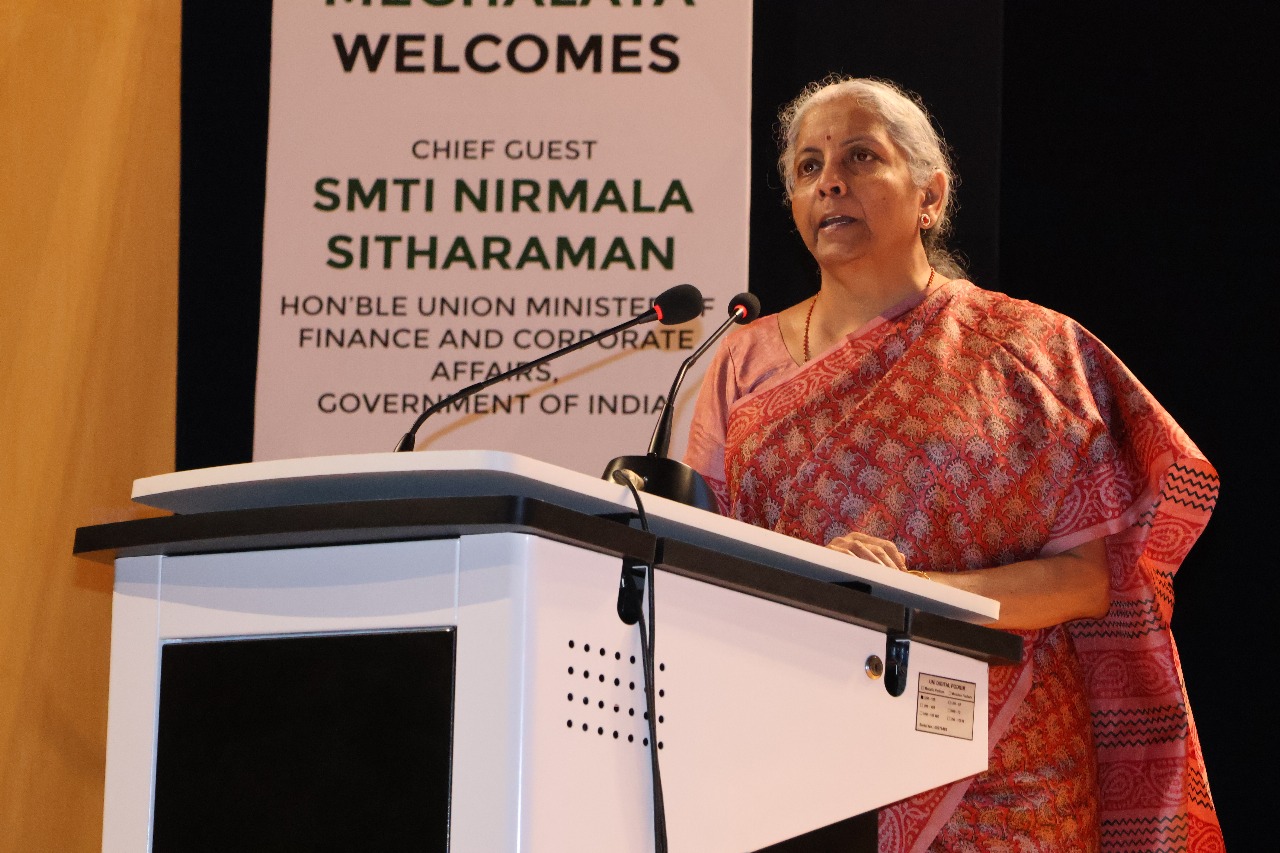
FM Sitharaman invokes Khasi Philosophy to promote ethical governance, sustainable growth
SHILLONG : Union Finance and Corporate Affairs Minister Smt. Nirmala Sitharaman on Friday invoked the timeless wisdom of indigenous Khasi Philosophy to highlight the need for ethical business practices, sustainable development, and human-centric governance.
She was addressing a gathering at the foundation stone laying ceremony of key development projects at Umsawli in the New Shillong Township near here. Calling the occasion a “remarkable and deeply personal moment,” the FM expressed admiration for the region’s deeply rooted value system, stating that traditional Khasi principles could offer a moral and sustainable framework for modern governance and enterprise.
In her speech, she spotlighted five key Khasi teachings that align with responsible governance and economic ethics. She spoke of ‘Ka Tip Briew Tip Blei (To know man is to know God), describing it as a human-centric ethos that mirrors the government’s approach.
“This idea of seeing divinity in humanity is profound and mirrors our government’s approach. By anchoring our work in this value, every initiative becomes endearing and meaningful,” she said. On ‘Kamai ia ka Hok’ (Earn righteousness), she emphasised the importance of ethical livelihood and integrity in business, stating, “Good business must be grounded in righteousness. Corporate governance must be rooted in integrity.” She then referred to ‘Ka Tip Kur Tip Kha‘ (Respect for kinship and community), describing it as a call for social responsibility in commerce. “Global capitalism must now be tempered with local values and humanism. This is not about rejecting globalisation but making it inclusive and sustainable,” she remarked.
The minister also highlighted ‘Ka Bhalang Ka Imlang‘ (The common good), identifying it as a guiding principle for shared prosperity that aligns with India’s global development vision like ‘One Earth, One Family’ and ‘Vasudhaiva Kutumbakam.’ She noted, “No business can truly succeed in a society that fails. What benefits one must not harm another.”
Finally, on ‘Mei-Ramew Ki Ryngkew Ki Basa’ (Reverence for nature and sacred spaces), Sitharaman stressed the importance of environmental stewardship. She shared her personal reflection from the drive from Guwahati to Shillong, saying, “The clean air, the green surroundings, this reverence for nature is deeply moving. Business and development must respect this ethos.”
Sitharaman concluded by stating that these traditional Khasi teachings are not only culturally significant, but also profoundly relevant to modern economic and policy thinking, offering timeless guidance in navigating contemporary challenges.

